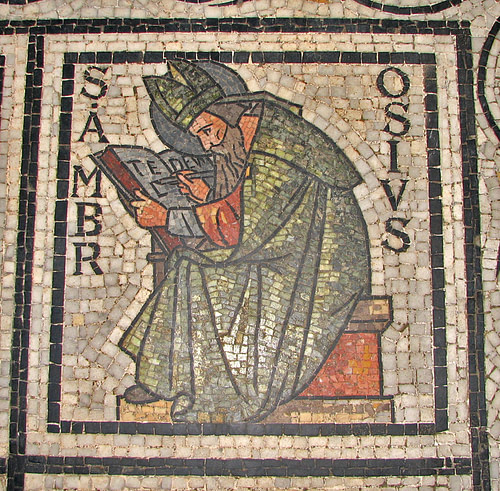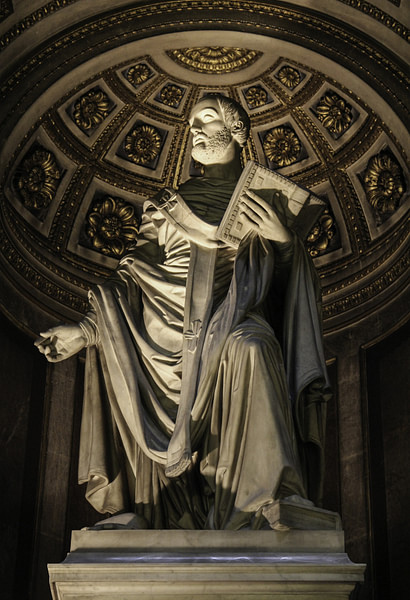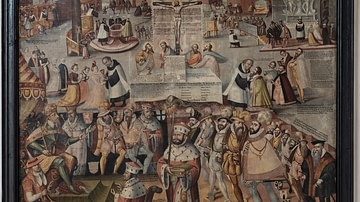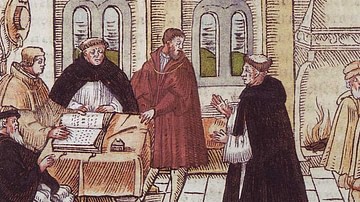Few theologians have attained as much renown and influence in history as Saint Augustine of Hippo (354-430 CE), a 'Doctor' of the Catholic Church and simply known by his peers as 'The Knowledgeable One.' A brilliant man who never sought to be appointed bishop in the Christian Church, he established theological categories that have been used for centuries (Original Sin, Predestination, Just War Theory, Understanding Evil, etc.), fashioned a systematic understanding of God based more on reason than mystical experience alone, and shared his exceptional theological insights in literary works such as City of God, Enchiridion, and his most famous spiritual memoir, Confessions.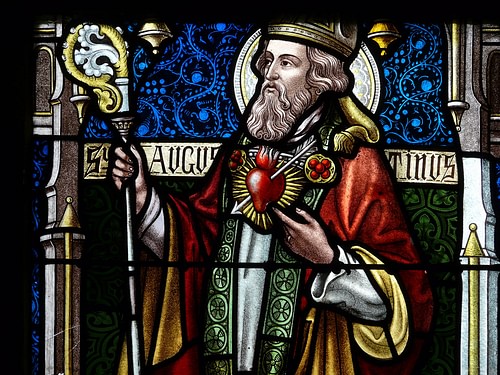
In Augustine's Confessions, he presents an autobiographical account of his life leading up to his conversion to Christianity and discusses the aftermath of that monumental spiritual event. Throughout Confessions, Augustine offers honest and vulnerable rumination on his wayward past and former worldly attitudes, and poignantly and painstakingly traces his path to reconciliation with his Divine Creator.
Worldly youth
Although Augustine has become "the most prominent and most widely studied author" in Western Christianity, he did not begin his life as a saint—quite the opposite (Drobner, 17-33). He grew up in a typical Roman family of the day. His father, Patrick, was not a Christian, but his mother, Monica, was and prayed unceasingly for his conversion. Augustine's depiction of himself is uncomplimentary, to say the least. He offers a portrayal of a pagan, self-centered wanderer who, although knowing morally what he should do, arrogantly chose to blaze a path of selfishness and hedonism. Augustine states of his childhood, "I disobeyed, not because I had chosen better, but through sheer love of play" (Book 1, ch. 10). Lying, stealing, and anger were all too common in his life at that time.
Growing older, Augustine became more cognizant of God and his own personal self-destructive ways, but still enjoyed the cravings of his body too much to cease—the classic battle between mind and flesh. As Augustine describes it, "The first course delighted and convinced my mind, the second delighted my body and held it in bondage" (Book 8, ch. 5). He truly was a self–conflicted man, wanting to be healed but enjoying his carnal activity too much to stop; he recollected thinking, "Give me chastity and continence, but not just yet" (Book 8, ch. 7).
As an adult, Augustine became a professor of Rhetoric and Philosophy and rose to the top of Roman academic circles despite being disappointed with the prosaic Roman school system that he found to be predictable and vacuous. Yearning for greater things, he moved closer to Roman political life and was appointed the Royal Court teacher, perhaps one of the most sought out positions in the Roman Empire for its social advantages. Still, Augustine laments, he felt dissatisfied with life. "I held my heart back from positively accepting anything, since I was afraid of another fall, and in this condition of suspense I was being all the more killed" (Book 6, ch. 4).
Seeking another path
Eventually, Augustine admits the force of God's love proved too much for him to ignore and he was overwhelmed by his conscience's awareness of the need for change. Augustine states, "When my most searching scrutiny had drawn up all my vileness from the secret depths of my soul and heaped it in my heart's sight, a mighty storm arose in me, bringing a mighty rain of tears" (Book 8, ch. 12). Despite all his great accolades and social victories, he still felt an emptiness inside. He writes, "I recall how miserable I was, and how one day [God] brought me to a realization of my miserable state" (Book 6, ch. 6).
Seeking spiritual fulfillment, Augustine began to dabble in religious groups, first becoming involved with the Manichean sect, a Persian religious movement started by Manes (216–276 CE) that syncretized Christianity, Judaism, Gnosticism, and Paganism. After nine years with them, Augustine left the Manicheans and joined the Neo-Platonists, whose philosophy was based on the dualistic teachings of Plato (428/427–348/347 BCE) and altered by Plotinus (204–270 CE), but also incorporated mystical monotheism, the existence of transcendent One, and hundreds of intermediate gods, angels, and demons into its doctrine. Neither group brought peace to Augustine's soul, though. He writes, "For those that find their joy outside them easily fall into the emptiness and are spilled out upon the things that are seen and the things of time, and in their starved minds lick shadows" (Book 9, ch. 4).
Conversion
Propitiously, during a teaching appointment in Milan, Augustine had the opportunity to hear and meet with Saint Ambrose, the Bishop of Milan, whose teachings would change Augustine's life forever. Ambrose was an eloquent speaker who courageously challenged the heresies and heretics of the day—Arianism, Paganism, and Emperor Valentinian. Moreover, Ambrose, too, was a Roman citizen, prominent in the public sphere, a prolific writer and preacher with a clear purpose and powerful message of God's righteous love for humanity, which attracted a spiritually–thirsty Augustine. As Paulgaard concludes, "Bishop Ambrose of Milan had a major influence on Augustine's life as he journeyed from heresy to orthodoxy and from sexual immorality to celibacy."
Shortly thereafter, as detailed in Confessions, Augustine describes a supernatural occurrence that he experienced in a villa garden wherein he heard a child's voice telling him to "Tolle lege, tolle lege"—"Take up and read, take up and read" (Book 8, ch. 12). Picking up a bible laying near him, what Augustine discovered seemed to point directly to his own personal vices and weaknesses. The scriptural passage from the Epistle to the Romans states, "Not in rioting and drunkenness, not in chambering and wantonness, not in strife and envying, but put on the Lord Jesus Christ, and make no provision for the flesh to fulfill the lusts thereof" (Romans 13:13).
For Augustine, this metaphysical event indicated a clear command from God to cease the rationalization and excuses for his immorality and chaotic spiritual life, and to submit to the Truth of God. He writes, "You have made us for yourself, Lord, and our hearts are restless until they rest in you" (Book 1, ch. 1). Augustine's understanding of himself and worldly treasures changed, dramatically, and he submitted to this new found reality—relinquishing all his will, his ego, and his life, to God.
From that moment on, Augustine began a new path of spiritual commitment by being first baptized by St. Ambrose, and then by embracing a secluded monastic lifestyle; however, the quiet life would not be allowed for Augustine whose gifts of rhetoric and theological understanding were too much in demand by the struggling Christian community. Olson writes,
In 391, Augustine was virtually forced to receive ordination by the Christian congregation in Hippo. . . Then when the elderly bishop of Hippo desired a co-bishop, Augustine was once-again pressed into service. . . During his tenure, he became deeply embroiled in the affairs of church life and politics and gained a reputation as one of Christendom's wisest leaders. (259-260)
Despite a past of hedonistic exploitation of the world, Augustine's future would be one of ministry and unselfish service to the world.
Legacy
Although St. Augustine is best known for his taxonomy and systemization of Christian faith and doctrine, his journey from disbelief to spiritual reconciliation cannot and should not be understated or ignored. In Confessions, Augustine showed that it was/is proper and beneficial to discuss personal struggles, to be an honest seeker, because, according to Augustine, everyone is on a spiritual journey through life.
St. Augustine sums up his understanding of the frailty of humanity and the greatness of God when he concludes,
No one knows what he himself is made of, except his own spirit within him, yet there is still some part of him which remains hidden even from his own spirit; but you, Lord, know everything about a human being because you have made him. . . Let me, then, confess what I know about myself, and confess too what I do not know, because what I know of myself I know only because you shed light on me, and what I do not know I shall remain ignorant about until my darkness becomes like bright noon before your face. (Book 10, ch. 5)

